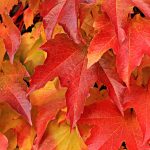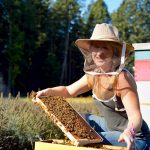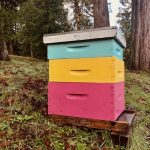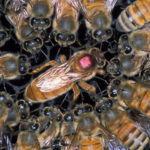WHAT IS…?
Beeswax, honey, bee venom, propolis, royal yelly, pollen, honey comb and bee bread… These are all products in our collection that might need some explanation. What are they? How do you use them? And how can they benefit you? We are here to answer these questions for you.
Flying into Fall: What Beekeeping Looks Like
Early fall is a busy time for beekeepers throughout the world. We just finished extracting the excess honey from our hives and we’re already preparing our colonies for the colder months ahead. This article will give you an idea of what beekeeping in the fall looks like. Read more
How To Create A Pollinator-Friendly Garden
You don’t have to be a beekeeper or an advanced gardener to create a pollinator-friendly garden. Often some small adjustments to your garden can go a long way in supporting nature’s little helpers. These affordable gardening hacks will turn your garden into a pollinator hang-out. Read more
The Amazing Life-Cycle of the Honey Bee
When people think about bugs, and bees in particular, they probably think they hatch as a baby bee and then do whatever tasks are required to sustain life and survive. When in fact, honeybees hatch out of a cell and have a very regimented and intricate life cycle. Read more
Manuka Honey: What’s the Buzz About?
Manuka honey is widely used to treat skin infections, burn wounds, irritation associated with acne, digestive problems, cold and flu symptoms, and to improve sleep. But what is it that makes Manuka honey stand out from the others? Read more
15 Household Uses For Honey
There are so many different ways you can use honey in addition to putting it in your tea or on toast. We get it, it’s delicious that way! But did you know that you can also use it to treat burns and acne and it can help you get a good night’s sleep? We selected our 15 favourite ways to include honey in everyday life. Read more
Beekeeping Through The Winter
As the days are getting colder you may have noticed the number of honeybees you see are slim to none. Unlike bumblebees, honeybees don’t hibernate. So how do they get through the cold winter months and what does beekeeping throughout the winter look like? Read more
Queen Bee: Head of the hive
Every bee colony has one bee that is instrumental in everything that happens within the hive, this is the queen bee. But how does a bee become the queen? Read it here.
Read more
Bee Pollen: What is that stuff?
Bee pollen is essential for young bees, but it can also be very beneficial for you. You just need to know how to access all the nutritional properties that bee pollen contains, and that is exactly what we will tell you here! Read more
Honey: Raw, Unpasteurized, and Pasteurized
Honey can be raw, unpasteurized or pasteurized. But what is the difference? And is one better than the other? We explain it all.
Read more
Bee venom ointment
The most active ingredient in Venex ointment is bee venom. Bee venom contains a powerful amount of anti-inflammatory properties. It’s often used to decrease inflammation of the skin and can benefit people with rheumatoid arthritis.
Read more
What Happens After Mason Bees Hatch?
You purchased or build everything mason bees will need; a house, the tubes and cocoons. And you’ve probably read about how to set up their nest to make sure that they hatch. But what’s next? Read more
Do you have any other questions about our products? Don’t hesitate to contact us.











